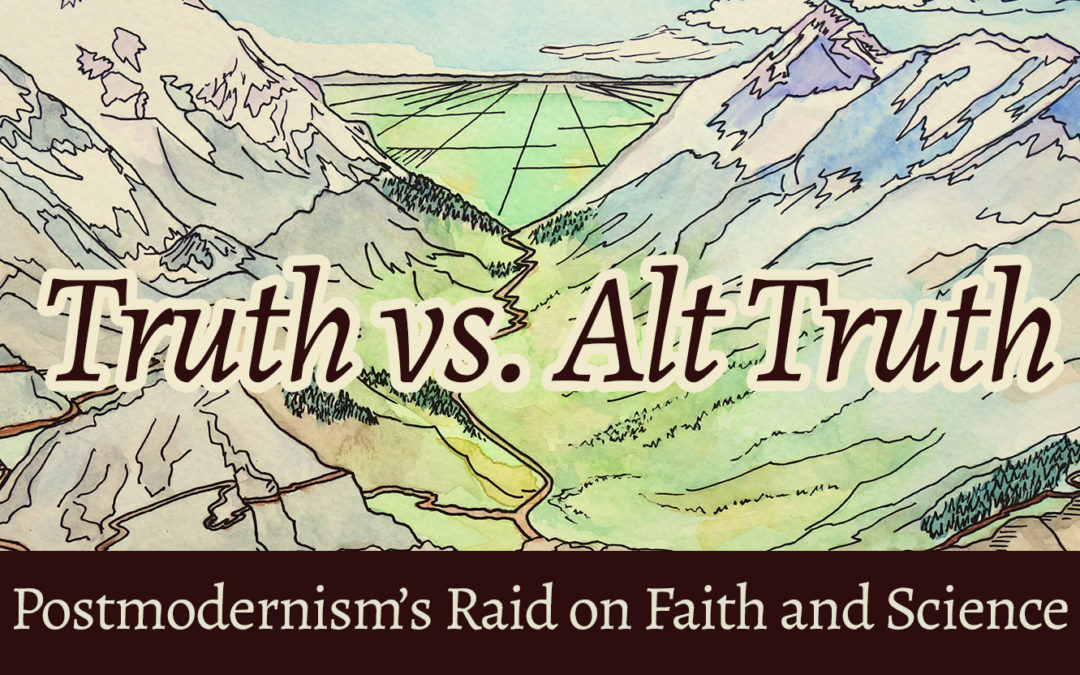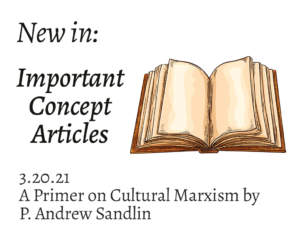Disclaimer
This blog is NOT written from within the political arena. The political arena is, of course, a clear example of the truth vs. alt-truth conflict. However, the problem is much larger than the current politically polarized state of affairs. My goal is to attempt to develop tools and understandings to address the larger problem that manifests itself on a global scale and disturbs the peace in speech communities throughout society
The Practical Problem
Many feel it, hear it, see it—the polarization of society and the secularization of the church. Can anything be done to address these concerns? To ask the question is to sense the near futility of doing anything because the challenges are so deep and difficult.
I assume that everyone realizes the problem of polarization. Most every place we gather to talk–the dinner table, the drinking fountain, while watching TV in a group, even when we are getting to know a stranger–we are subtly on guard. If we aren’t careful, we could be at war in a second. Does the tension arise from political polarization? Racial tension? School curriculum? Politically correctness in the use of language? The rich getting richer and the poor getting poorer? The Trump era? The Clinton era before it? Cable TV? Worship styles? Heaven then or heaven now? In whatever context and for whatever reason, polarization is always with us.
The type of polarization that concerns me here is the deep polarization, not about what is true in a particular case, but about what is truth? At the root is the polarizing power of two and more views of truth. We are polarized around different views of reality, but in significant ways we don’t understand what is happening. We have a hard time discussing things reasonably because our culture is shouting conclusions based on different sets of evidence aligned to different understandings of truth.
These are different understandings, but not in an academic, aloof way. The divide carries intensity because it involves the way we know the truth about justice, about eternity, about right and about wrong.
Is there any way for thoughtful people to understand the major cause of polarized discourse in society and the polarizing secular practices in the churches? Yes, I believe that there is. There is a promising way to understand the root causes of the stalemate we experience today.
The Conceptual Problem
Hold on tight. Starting a journey of discovery that requires us to think about how we think is a bit intimidating.
First, we must adjust our expectations. There is no quick and easy way to understand multiple, complex issues. We didn’t become polarized in a day, and we can’t understand the problem in a sound bite. The polarization symptoms are on the surface, but if we look only there, we get confused. It’s easy to blame polarization on the cultural wars that revved up in the 1960s and have only gained speed. If it were only that simple!
Skating on the cultural surface and refighting cultural wars is futile. The alternative to this surface chase is to settle down to a serious search, more like a Lewis and Clark expedition than a walk in the park. We must adjust our expectations from seeking solutions to first parsing a prolonged and pervasive ideological conflict that puts truth based on a critically careful description of reality at odds with an alt-truth (my term) based on the preferred values of a particular ideology. The result is a raid on truth authority in both the church and the state, as I shall seek to show.
The media and society in general have classified the basic changes in how we “do things” as a new culture, a postmodern culture. A postmodern culture is often described as fractured, like the glass of a windshield hit by a large bird. What we need to discover is what caused the culture to shatter. Technology? The arrival of the information age? Globalization? Multiple factors do play a role; however, there is one root cause that must be understood if we are going to move forward.
What lies at the root is a shift in the way millions of people view reality itself. The difference shows up in how we use language to relate to and understand the human condition. This shifting view of reality shows up in verbal conflict when we talk about how we should live in our present situations. But our polarization is ultimately due to different versions of truth.
Where We Have Been and Are Now
For thousands of years we have been seeking to discover the truth at hand by finding out what really is and what really happened. Modern science has greatly increased our knowledge of truth about nature by developing disciplines and methods through critical descriptions of reality.
Every day we are faced with the need to discover truth. The need can be as common as a mother running a fact check on her seven-year-old’s claim that he hit his sister because she hit him first. Or, it can be as complex as a debate in the liberal arts and science division of a major university. Whatever is offered up as truth must be critically checked to confirm, modify, or falsify the claim.
Something New: Truth That Is Made, Not Discovered or Revealed
Isn’t the need for a reality check obvious? Not necessarily. In fact, there is a broad movement across America and in other parts of the world to decenter the very idea of granting authority to truth based on reality. What should then take center place? In effect, the Postmodern Ideology has an answer: it is an alt-truth system of knowing that is developed from doing. What is more, it is militant; it insists on being the lens through which all reality is viewed. What is dangerously tragic is how easy it is to ignore the rumblings that precede a major earthquake as society is led toward a fault zone of unstable alt-truth.
Readers less familiar with the Postmodern Movement’s belief system and the inner logic of the system might be asking: What are some examples you can provide? Fair question. But, the answer will have to wait. I appreciate the need for anecdotes, but it is a different story than the one I am telling. I’ll try to give illustrations, but for now, I must articulate the purpose I seek to achieve by giving an overview of the problem.
Bottomline: we are faced with a raid on the knowledge systems of science and faith. There is an ideological goal being persistently pursued to align not with truth but instead to the preferred values and time expectations of the ideology seeking change.
Why is this change taking place? The change is not accidental: it is the result of sociopolitical strategies and methods to bring about social change. The shift is due to the broadly accepted belief system of the Postmodern Movement. This belief system carries a method of social change that decenters truth based on critical descriptions of reality, replacing it with a kind of sociopolitical “truth,” which I am calling an alt-truth.
It would be a mistake to think of the switch from truth to alt-truth as a grand conspiracy, as if some central power was initiating and sustaining the conflict. Rather than an organized conspiracy, we are faced with a belief system that persists through several generations in much the same way a religion does.
Why this activist mission—a belief system directly entangled with policy and behavior? Because knowledge of actual truth is seen as a power structure, an obstacle to social change that stands in the way of establishing the preferred values of the ideology. This shift from truth to alt-truth is driven by a vision to progress toward an ideal, a utopian future, one in which major social injustice can and will be addressed. As we have seen, millions respond in positive ways to calls for justice now because justice is needed. The need for justice now is real. What is not understood is that the price of instant justice may be the loss of truth that can serve as an ultimate reality check on the solutions advanced. It is this dark side of the truth vs alt-truth conflict that must be brought to light.
Therefore, we must not understand this belief system of the Postmodern Movement only as an academic exercise. Instead, we must start with understanding its method of social change. Further, we must realize that the method includes a commitment to use sociopolitical power to bring about change, not just persuasion based on the truth. The Postmodern Movement creates a conflict between truth and sociopolitical narratives, in effect offering a different reality to be recognized through a different lens. In this universe, our understanding of reality is to be constructed to give preference to the sociopolitical values of the ideology. The polarization that emerges as different sectors of society use different lens to view reality is the root cause of polarization in society and a major force driving the secularization of the church. The resulting ideological conflicts have the power to shake the foundations of a nation and destabilize the church. For example, alt-truth assertions threaten the 500-year-old gains of the Reformation won through a recovery of truth.
Understanding Through Logical Discovery
Where shall we start our search for understanding the polarizing truth conflicts of our time? It makes sense to me to focus on how people think about reality at the presuppositional level of logic. Presuppositions form the framework or the basis for reasoning toward knowledge. They set the course toward what can be known truly and what can be known only in part. Understanding presuppositions can help us manage our differences or reveal why some ways of knowing can never be at peace with others. Looking at the presupposition of three systems of knowledge–science, Christian theology, and the belief system (ideology) of the Postmodern Movement–will uncover major reasons for the extreme polarization of our times.
Thank you for joining me in this space. You can join the conversation by using the comment section or the email option under the Contact button. To receive notice via email when the next post has been made, enter your name and email in the column to the right where it says “Subscribe”.
8 Comments
Trackbacks/Pingbacks
- Important Concept Articles | Mountain Wood Study Center - […] Post One […]



Thanks for this. I’ll be interested to know what 500 year old gains from the Reformation you think are being threatened.
Bob,
I really like the subtitle to this blog “postmodernism’s raid on faith and science.”
I think this title is illustrative of a key point you are making. The challenge is not between science and faith but between competing alternative views of determining truth.
Looking forward to the next post.
Tom
‘…there is a broad movement across America and in other parts of the world to decenter the very idea of granting authority to truth based on reality.’ Man, truer words!! Exactly!
Very good! Thanks for continuing to use the gifts God has given you for the sake of His Kingdom! May He strengthen you to write numerous blogs surrounding this and other vital topics of our day.
Thank you for this effort and gift, Bob. I will look forward to digesting and benefiting from your posts.
Thanks Bob, looking forward to future posts.
Thank you Pastor Bob Looking forward to more
Well done Bob! Well thought through and easy to follow. I was so excited to see you get to the foundational understanding of what’s going on.